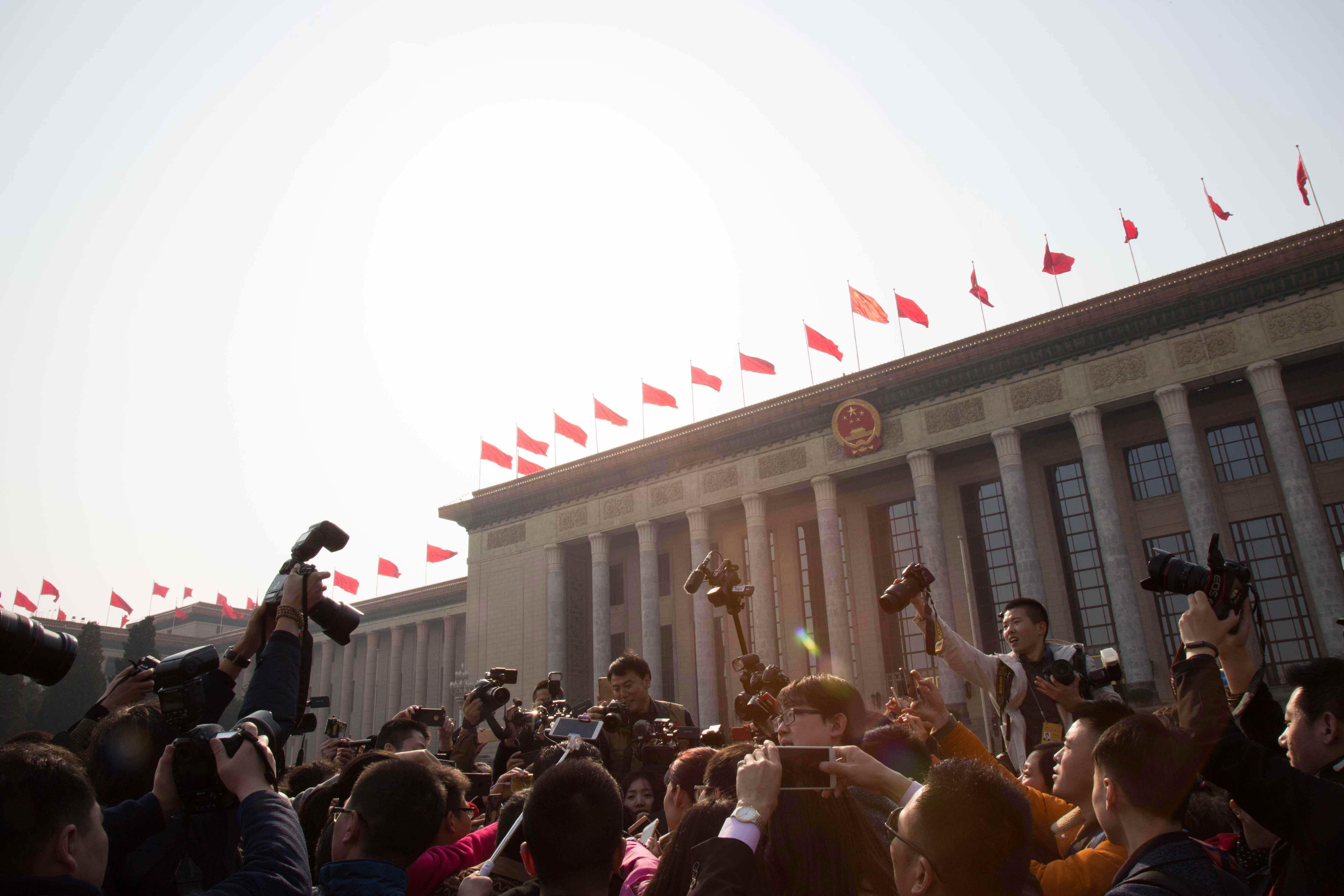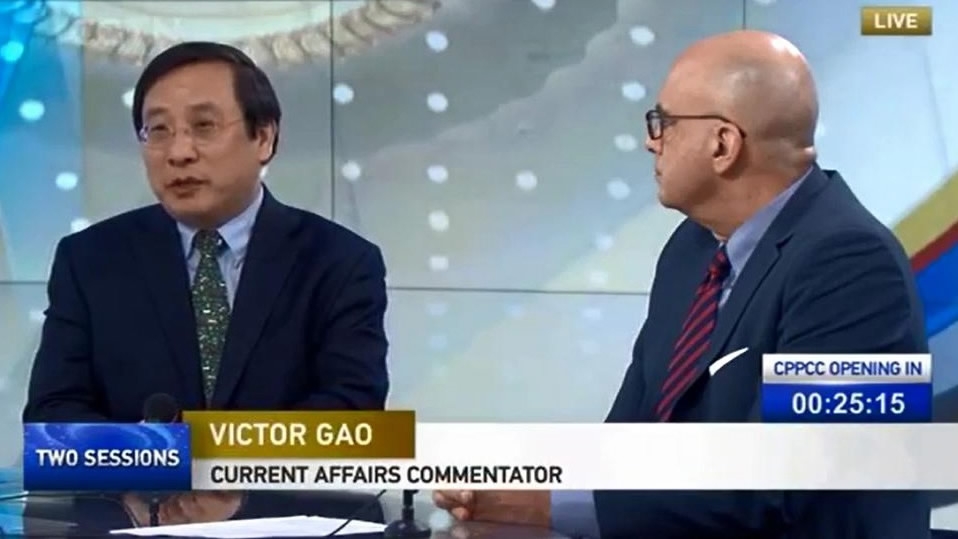
Politics
19:19, 03-Mar-2017
NPC deputies and CPPCC members attending the annual Two Sessions in China
Updated
10:56, 28-Jun-2018

China’s most important annual political season: the “Two Sessions," gets underway in Beijing this week. The Fifth Session of 12th Chinese People's Political Consultative Conference (CPPCC), opened on Friday afternoon, while the Fifth Session of the 12th National People’s Congress (NPC) opens on Sunday.
Thousands of NPC deputies and CPPCC National Committee members from across the country gather in Beijing, capital of China. CGTN has a brief introduction to the roles and functions of both NPC deputies and CPPCC members.
Who are the NPC deputies?
NPC deputies, or Chinese national lawmakers, differ from members of parliament in the West, who are generally full-time politicians and have their own staff and campaign teams. NPC deputies are part-time and indeed many are ordinary citizens.
NPC deputies hear and review a number of reports, including the annual government work report, which will be delivered by Premier Li Keqiang at the NPC opening meeting.
Who are the CPPCC members?
CPPCC members, or political advisors, come from China's various walks of life and ethnic groups.
At present, the CPPCC consist of representatives of the CPC and non-Communist parties, personages without party affiliations, and representatives of people’s organizations, ethnic minorities and various social strata. It also has the representation of compatriots of the Hong Kong Special Administrative Region, Macao Special Administrative Region and Taiwan, returned overseas Chinese, and specially invited people.
Political advisors put forward "proposals" and offer suggestions and opinion to the people’s congresses and governments.
Who could be the Two Session’s delegates?
An NPC deputy can be the country's president or a simple farmer, a celebrated tycoon or a migrant worker, a space scientist or a doctor.
Most of the more than 2,000 CPPCC members are experienced political figures, social celebrities, experts and scholars specializing in various fields, including NBA star Yao Ming, Nobel laureate Mo Yan, and actor Jackie Chan.
Motions and proposals differ or not?
An NPC motion becomes legally binding if it is adopted. However, a proposal to the CPPCC National Committee, the top advisory body, is not legally binding even if it is adopted.
But that's not necessarily the end of the proposal. It can later be raised as a motion by an NPC deputy and it can then become legally binding if it gets enough support.
Generally speaking, members of the CPPCC can raise proposals at any time they wish, while an NPC motion can only be raised when the top legislature is in session.

CGTN took an interview with Victor Gao, a current affairs commentator, just before the opening of the CPPCC session. And Gao said CPPCC members have their own full-time jobs in various fields and are distinguished from works and life.
Gao added the scheme encourages a broad supply of ideas and new perspectives on any particular issue. And “it is the beauty of CPPCC that the ideas would be tested not by one group of people, but by people from all works of life,” Gao mentioned.
4km

SITEMAP
Copyright © 2018 CGTN. Beijing ICP prepared NO.16065310-3
Copyright © 2018 CGTN. Beijing ICP prepared NO.16065310-3